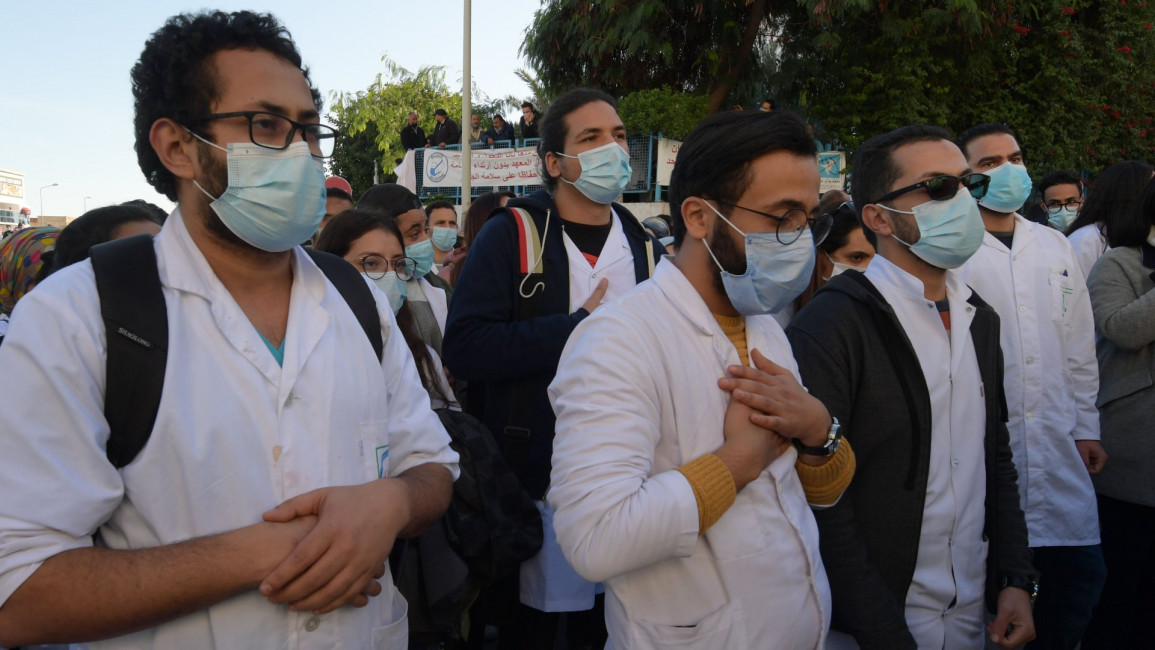IMF urges Tunisia reform plan, social support
The International Monetary Fund on Saturday encouraged Tunisia to establish a reform plan and bolster social support, as the virus-hit country struggles to balance its budget.
"Tunisia faces two immediate challenges: saving lives and livelihoods until the pandemic wanes, and starting to bring economic imbalances back to a sustainable trajectory," an IMF team said in a statement.
The statement was released after virtual consultations with Tunisian authorities in late December and earlier this month.
"A broad-based and credible reform plan backed by Tunisian society and international development partners is critical to help achieve durable and inclusive growth over the medium term," it said.
It also encouraged authorities to "continue to strengthen social safety nets".
A four-year IMF financing programme ended last spring but Tunisia has not requested further assistance.
The country has lent on international support in recent years and is currently trying to balance its 2021 budget.
Read more: Tunisia: The road to revolution
While the statement said authorities had responded "pro-actively" to the country's novel coronavirus outbreak, it estimated that "real GDP has contracted by an unprecedented 8.2 percent in 2020, resulting in higher poverty and unemployment".
It said Tunisia's fiscal deficit was estimated to have widened to 11.5 percent of GDP and urged "specific measures" to back budget objectives to narrow the gap.
"IMF staff expects GDP growth to rebound to 3.8 percent in 2021 as the effects of the pandemic start to wane," a statement quoted IMF official Chris Geiregat as saying, but warned the ongoing health crisis would impact that figure.
Geiregat also repeated IMF calls for Tunisia to target aid towards poor families instead of offering subsidies on products like bread and fuel.
Twitter Post
|
"It is essential to strictly prioritise spending on health and social protection, while exerting control over the wage bill, ill-targeted energy subsidies, and transfers to state-owned enterprises," Geiregat said.
The IMF has long urged Tunisia to reduce the number of employees on the state payroll and cut support for poorly performing public companies.
The novel coronavirus pandemic has exacerbated economic misery for Tunisians, with the vital tourism sector on its knees and disruptions to informal employment.
Hundreds of demonstrators took to the streets on Saturday to protest police repression, corruption and poverty, following several nights of unrest marked by clashes and arrests.
Much of that unrest has been in disenfranchised and marginalised areas, where anger is boiling over soaring unemployment and a political class accused of having failed to deliver good governance, a decade after the 2011 revolution that toppled long-time dictator Zine El Abidine Ben Ali.



